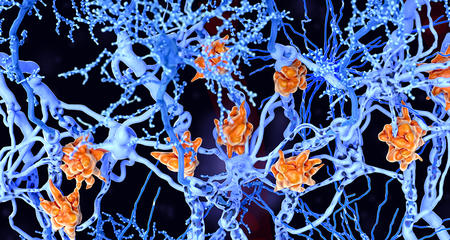Multiple sclerosis (MS) is an unpredictable progressive neurological disorder that is caused by an abnormal response of the body’s immune system. The immune system attacks the central nervous system, including the brain, spinal cord, and optic nerves.
The immune system attack causes damage to the myelin- the fatty substance that surrounds and insulates the nerve fibers. This damage is called demyelination and causes damage to the nerve fibers. That means the flow of information within the brain, and between the brain and body can be disrupted.

What causes MS?
The cause of MS is unknown. Scientists believe it is caused by several factors:
- Abnormal immune responses that cause inflammation and damage in the central nervous system (CNS)
- Environmental factors
- Infectious factors like viruses and bacteria
- Genetic factors
MS Symptoms
MS symptoms are variable from person to person and can be unpredictable. No two people have exactly the same symptoms, and symptoms can change over time. Most symptoms can be managed effectively with medication, rehabilitation and other strategies. Effective symptom management by an interdisciplinary team of healthcare professionals is one of the key components of comprehensive MS care.
More Common MS Symptoms
- Abnormal sensations like numbness or tingling
- Walking (gait) difficulties
- Vision problems
- Bladder problems
- Weakness or fatigue
- Dizziness
Less Common MS Symptoms
- Speech problems
- Swallowing problems
- Seizures
- Hearing loss
- Loss of taste
- Tremor
- Breathing problems
Types of MS
- Clinically Isolated Syndrome (CIS)
- A single episode of MS-like symptom(s) lasting at least 24 hours.
- A person with CIS may or may not develop MS.
- No new disability between attacks.
- Relapsing-Remitting MS (RRMS)
- Most common form of MS, about 85%.
- Symptoms may improve or disappear during remission (recovery).
- No new disability between attacks, but followed by a steady increase in disability.
- Secondary-Progressive MS (SPMS)
- Symptoms worsen steadily over time.
- May or may not have relapses and remissions.
- Most people with RRMS will transition to SPMS.
- Primary-Progressive MS (PPMS)
- Least common form of MS, about 10%.
- Steady progression of disability without attacks.
- No relapses or remissions.
- Progressive-Relapsing MS (PRMS)
- Rarest form of MS, about 5%.
- Steady progression from the beginning.
- Acute relapses but no remissions, with or without recovery.
Source: National MS Society
Neuromyelitis Optica (NMO)
Neuromyelitis optica (NMO), also known as Devic's disease, is an autoimmune disorder that primarily affects the optic nerves and spinal cord. The damage to the optic nerves cause pain and loss of vision. Individuals who experience damage to the spinal cord may experience weakness or paralysis in the legs or arms and problems with bladder and bowel function. With NMO, there may be periods of remission and relapse, like MS.
The Froedtert & MCW Multiple Sclerosis Program

Our MS program provides a team approach to care. By managing MS and its symptoms, our goal is to help improve patients’ quality of life and increase their comfort. We are a member of the Consortium of Multiple Sclerosis Centers and recognized by the National Multiple Sclerosis Society for providing comprehensive, individualized care to patients with MS.
Our team of experts is recognized regionally and nationally for leadership in MS research and clinical trials and for an aggressive approach to MS treatment. With the help of multiple sclerosis patients participating in clinical trials, we hope to discover new strategies to treat disease progression. We use state-of-the-art imaging techniques to help accurately pinpoint areas of damage in the brain caused by MS.
The team will utilize the expertise of other specialists from the Froedtert & MCW health network, including urologists, ophthalmologists, neuro-ophthalmologists, neuroradiologists and physical medicine and rehabilitation providers to address the needs of each patient. Our team will arrange for patient appointments into these specialty areas.
In addition to diagnosing and managing the disease and its symptoms, we provide a strong focus on patient education, helping patients and their families learn to adapt the challenges that the disease presents, and promoting wellness.
Treatments are tailored to patients’ specific needs. MS is a complex disease that requires expertise from many different health care professionals. To address the needs of each patient, the MS team collaborates with other specialists from the Froedtert & MCW health network, including neuropsychologists, neuro-ophthalmologists, physiatrists; neuroradiologists, urologists, nurses and therapists (physical, occupational and speech). Our team coordinates patient appointments for you in these specialty areas. In addition to diagnosing and managing the disease and its symptoms, we provide a strong focus on patient education, helping patients and their families learn to adapt to the challenges of MS.
Virtual Visits Are Available
Safe and convenient virtual visits by video let you get the care you need via a mobile device, tablet or computer wherever you are. We'll assess your condition and develop a treatment plan right away. To schedule a virtual visit, call 414-777-7700.



